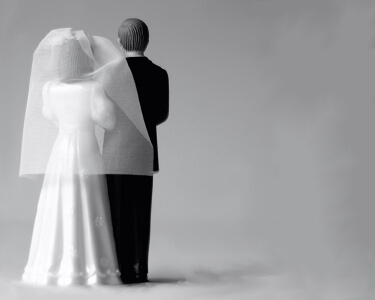
“Of course, we can never be certain how a court will rule until the decision is actually issued, but today’s arguments were very encouraging for those who worked so hard to ensure the passage of Prop. 8,” said attorney Brad Dacus, president of the California-based Pacific Justice Institute.
Proposition 8 passed in November with 52 percent of the vote, overturning the state Supreme Court’s May ruling legalizing gay marriage. But supporters of same-sex marriage subsequently filed three separate lawsuits claiming the measure was not a constitutional amendment but a revision that should never have been put before voters. A constitutional revision requires a two-thirds vote of the state Legislature before it can appear on the ballot. (Read more about the case against Proposition 8.)
At Thursday’s hearing, several justices seemed skeptical of calling Proposition 8 a revision to the state constitution. “You would have us choose between these two rights: the inalienable right to marry and the right of the people to change their constitution,” said Justice Joyce L. Kennard, Time magazine reported. “You ask us to willy-nilly disregard the right of the people to change the constitution of the state of California. But all political power is inherent in the people of California.”
That was the view put forth by Kenneth Starr, who represented Proposition 8 supporters. “The issue before this iconic court has to do with the sovereignty of the people of California,” said Starr, dean of the Pepperdine University School of Law and a former United States solicitor general. “We have heard a lot about individual rights and suspect classification … But the Attorney General’s office points to one inalienable right, the right to marry. But the people, too, have an inalienable right to change their constitution.”
Only Justices Carlos R. Moreno and Kathryn M. Werdegar asked questions that indicated they might overturn the measure.
Chief Justice Ronald George appeared to suggest that Proposition 8 opponents really wanted to make it harder to alter the state constitution, which has been amended 500 times since 1911, Time magazine reported. But he said that was an issue to take up with the state Legislature and not with the courts.
The justices also seemed skeptical of Attorney General Jerry Brown’s argument that Proposition 8 should be overturned because it violates the inalienable right to marry, which is too important to be struck down by a constitutional amendment. But the justices asked how the court was to distinguish between rights that can’t be taken away and those that are subject to amendment, the Times reported.
Justice Ming W. Chin asked whether the state should eliminate the concept of civil marriage entirely, leaving only civil unions or domestic partnerships available to all couples, whether heterosexual or homosexual, PJI reported.
In a debriefing with California pastors, Andrew Pugno, who argued with Starr on behalf of traditional marriage supporters, said the court seemed likely to uphold Proposition 8.
“You saw the court pretty broadly looking skeptically at the idea that an individual right declared by the court could trump or be off-limits from the vote of the people,” Pugno said. “Ultimately at the end of the day the inalienable right of the people to amend their constitution should control the outcome. So the other side had its work cut out for them because the court seemed predisposed against it.”
Pugno said the court was equally skeptical of invalidating the 18,000 marriages licensed between June and November. “It really seemed like the court was really not looking at the law but just looking at emotion and kind of the politics and of the human element and saying this just doesn’t seem fair that we shouldn’t grandfather in some gay marriage because they were able to do it before the elections,” he said.
The court has up to 90 days to issue its ruling.












































